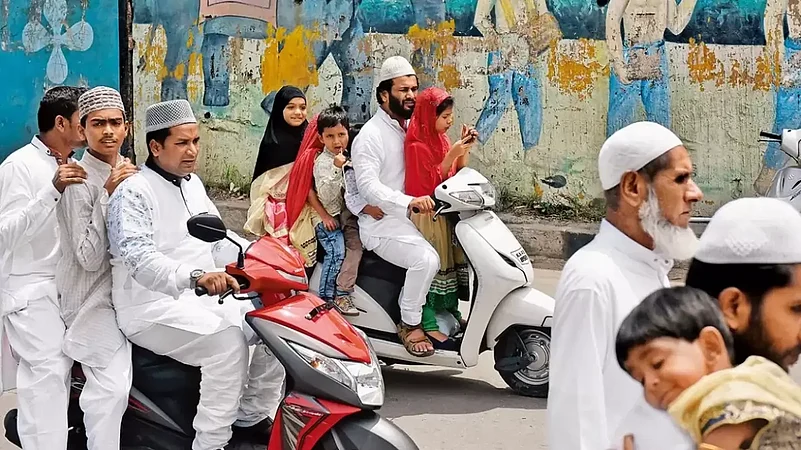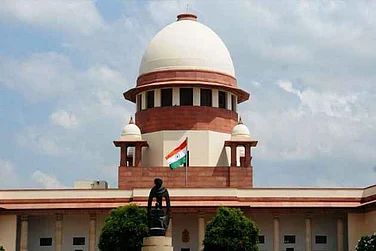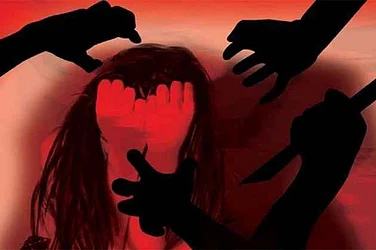After the Supreme Court’s ruling on November 7 that upheld the 10 per cent reservation for Economically Weaker Sections (EWS) in public jobs, public and private education, fear looms large that the bulk of EWS quota will likely be appropriated by Hindu savarnas (upper castes).
One question has emerged from this predicament: Will the verdict have a bearing on the government panel’s deliberations formed to decide on including Dalit Muslims under the Scheduled Caste category?
While caste quotas are being constantly extended to various categories of socially backward Hindu groups who are viewed as victims of caste oppression, Muslims find themselves out in the cold on the basis that there’s no caste system in Islam. Islam believes in one big Muslim brotherhood (umma) where all are equal, irrespective of their social and economic status. While this concept of a casteless and classless Muslim community holds true in theory and elsewhere in the world, but in practice caste and class play a big role in the lives of South Asian Muslim societies, and the belief that there are no victims of Hindu-style caste discrimination in this community, holds no water.
Fact of the matter
Pasmandas, a Persian term for Muslims from OBCs and SCs that means ‘those left behind’, form around 80 per cent of the Muslim population, but most of the jobs and college seats are cornered by 15 per cent Ashraf (upper caste Muslims). The Ashrafs encompass Pathans, Sheikhs and Syeds, while Ajlafs include Ansari (weavers), Saifi (carpenters), Salmani (barber) Ghosi (shepherds), and such. The Ajlafs, roughly equivalent of Dalits, are at the bottom of the pile.
Pasmanda Muslims were the worst hit in the name of cow protection, ghar-wapsi, love jihad, Corana jihad for Tablighi Jamaats during the pandemic, temple-mosque conflicts going on since 2004, etc. The recent felicitation of the remitted perpetrators guilty of raping Bilkis Bano, a Pasmanda Muslim, and murdering her family during the Gujarat riots in 2002 can only be interpreted as a symbolic injury by Pasmanda Muslims.
On the other hand, PM Narendra Modi in July at the BJP national executive meeting in Hyderabad exhorted party workers to reach out to weaker sections among Hindus and Pasmanda Muslims. Modi also suggested to the BJP to take out Sneh Yatras (love yatras) instead of Sangharsh Yatras (yatras for waging struggle).
However, former Rajya Sabha MP Ali Anwar, who invented the term Pasmanda, called out BJP’s hypocrisy in an open letter to Modi. He wrote that “The Pasmanda Muslims want sam-maan (equality and dignity), not sneh (affection). The term sneh has a specific connotation: That the Pasmanda Muslims need sneh denotes that they are an inferior lot requiring patronage from the ones who are superior... Has the sudden move to take out Sneh Yatra for Pasmanda society something to do with vote-bank politics?” He also asked: “Didn’t Home Minister Amit Shah ji call upon the people at the time of Delhi Assembly elections when a peaceful movement of Muslim women against the NRC [National Register of Citizens] and CAA [Citizenship Amendment Act] was going on, to ‘press the button in such a way that Shaheen Bagh gets electric shock’?”
Backward Muslims, a mere showpiece for Opposition?
A recent article, After Tricking OBCs and Dalits, BJP’s Magic Show for Pasmanda Muslims, states that the BJP turned a large segment of OBCs and UP Dalits against the Yadavs and the Jatavs, the most dominant caste groups in these two categories, irreparably splintering them for good. The incumbent party, say critics, wants to try the same with the Muslims and Pasmandas. The idea is to fragment the Muslim community to weaken the Opposition before the 2024 Lok Sabha election.
For instance, the BJP granted only four tickets to Pasmanda Muslims in the 2022 Municipal Corporation of Delhi out of 250 seats. This means only 1.6 per cent of BJP’s candidates were Muslim. Recently, Pasmanda Muslims from UP were given prominent roles: Danish Azad Ansari was appointed as Minister of State for Minority Welfare; Iftikhar Ahmad Jawed was made the chairperson of the State Board of Madrassa Education, and Chaudhary Kaif-ul-Wara of the UP Urdu Akademi. The BJP, according to factual data, is excluding Muslims but wooing the Pasmandas, believing their dire circumstances will make them want to believe in the party’s promise of ushering in a new dawn for them. However, it is unlikely the BJP will assign Muslims with heavyweight ministerial portfolios.
To gauge the opportunities the Muslim community has according to the EWS quota, check the 2021 UPSC Civil Services results that included the 10 per cent EWS quota, which amounted to 86 seats. This included candidates from all religions. Brahmins topped the list with 27 candidates, Kshatriyas secured 17 seats, Jains and Baniyas both secured 7 seats each, Kayasths secured 2 seats, while Yadav and Jat got 1 seat each. Only 2 Muslims were selected for the 86 seats.
EWS quota, a distant dream
Factual data shows the Union government is against extending these reservations to the Muslim community.
The Sachar Committee Report way back in 2006 had demonstrated that the Muslim minority suffers communal prejudices that the majority amongst them survive in appalling class conditions, and a section of them also belong to the lower and untouchable castes. Similarly, the report by Justice Ranganath Misra Commission in 2007 recommended that Dalit Muslims and Christians be included in the SC list.
The Union government could have issued a Presidential order to insert Dalit Muslim castes in the SC list based on a 2008 review-study commissioned by the National Commission of Minorities. The study found that Dalit Muslims were the worst off among all Dalits; under-represented among the affluent and over-represented among the poor. Instead, the Bombay High Court had scrapped 5 per cent reservation to Muslim provided by the Congress-NCP government ahead of 2014 Assembly Elections in government jobs but allowed it in education.
Instead, a three-member commission, headed by former Chief Justice of India KG Balakrishnan, will examine whether Dalits who converted to Islam and Christianity should be included in the SC reservation. The Balakrishnan Commission has been given two years to submit its report, which means it will come months after the May 2024 elections. Whether the BJP bother to implement reservation after securing the votes of Dalit Muslim is debatable.


























